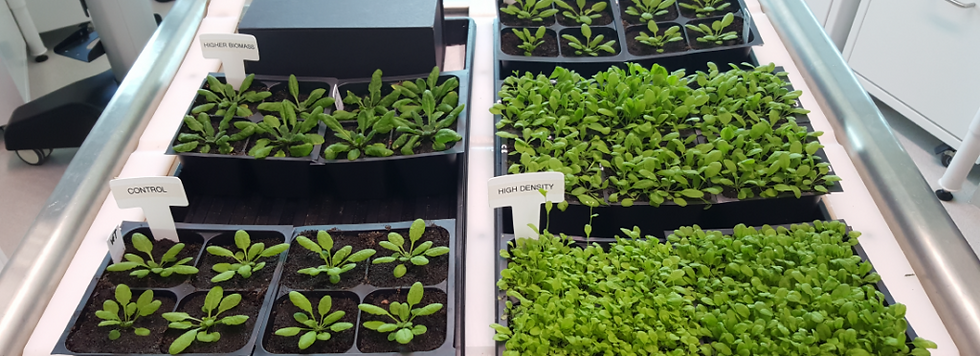
Disruptive & Sustainable Technologies for Agricultural Precision (DiSTAP) IRG



DiSTAP
What is the DiSTAP IRG?
The Disruptive and Sustainable Technologies for Agricultural Precision (DiSTAP) Interdisciplinary Research Group (IRG) is a Singapore-MIT partnership to address high-impact problems in the area of agriculture in Singapore and globally. The DiSTAP program is developing a suite of novel technologies that are fundamentally changing how plant biosynthetic pathways are discovered, monitored, engineered, and ultimately translated to meet the global demand for food.
Our team of scientists at the Massachusetts Institute of Technology (MIT), Temasek Life Sciences Laboratory (TLL), Nanyang Technological University (NTU), and National University of Singapore (NUS) are enabling continuous measurement of important plant metabolites and hormones for novel discovery, deeper understanding, and control of plant biosynthetic pathways in ways not yet possible, especially in the context of green leafy vegetables.
The IRG is also leveraging these new techniques to engineer plants with highly desirable properties for global food security, including high yield density production, drought, and pathogen resistance, and applying these technologies to improve urban farming. In the past year, the IRG also completed a biosynthetic study of volatile organic compounds for urban farming in the form of a Thrust 2 that targeted this objective.
DiSTAP also initiated research into a number of new silk-based biomaterial technologies. In this next year, we will continue our highly productive working relationship with our technical collaborators at the Temasek Life Sciences Laboratory, and plan to extend the application of new tools to an increasing number of crops important to both urban farming, and global agriculture.
The vision for the DiSTAP program is to develop Disruptive and Sustainable Technologies for Agricultural Precision needed for Singapore's agricultural production and the associated global market. The technologies developed are being translated from the laboratory bench to the field and urban farm. With these translational activities, adapting sensors, biomaterials, and algorithms directly to the urban farm, the IRG seeks to greatly enable the farmer to control and maximize yield and improve crop modularity, as depicted in the feedback control scheme below.

Among the many highlights from 2020-21, our combined Raman/Nanosensor technology was highlighted at the World Economic Forum and published in the prestigious journal Nature Plants. A new spinout company has been initiated to commercialize DiSTAP technology and accelerate its translation to urban farms.
